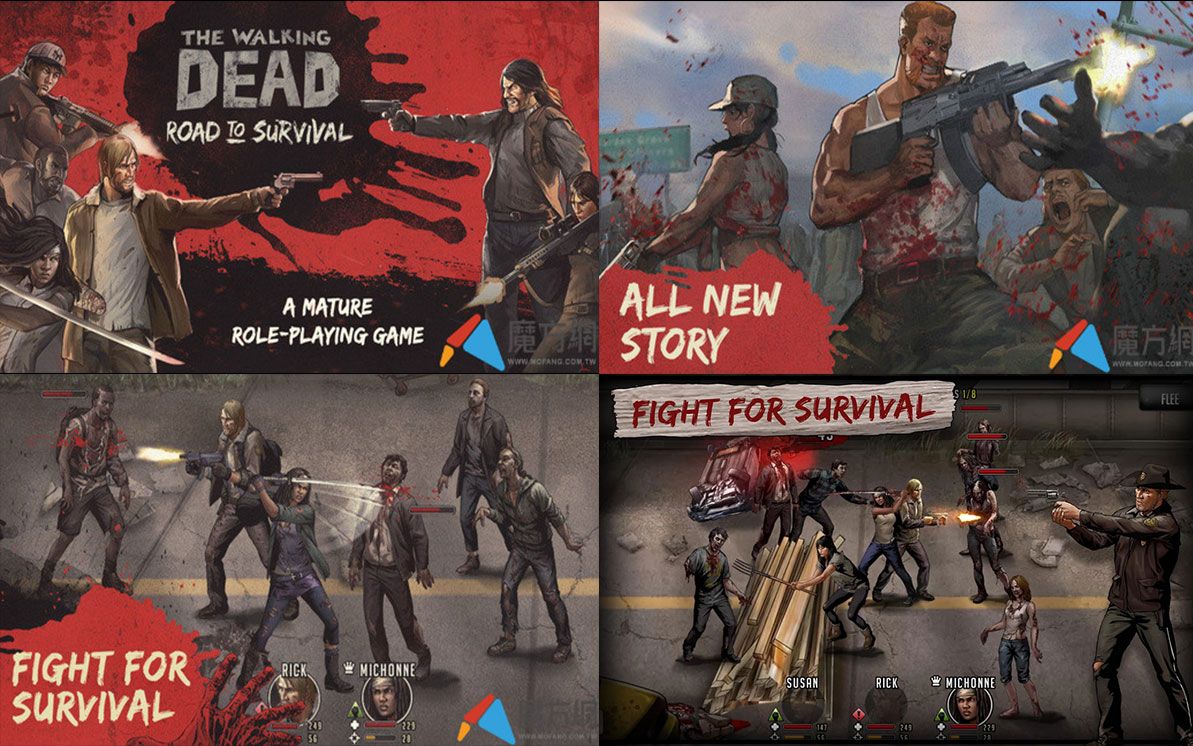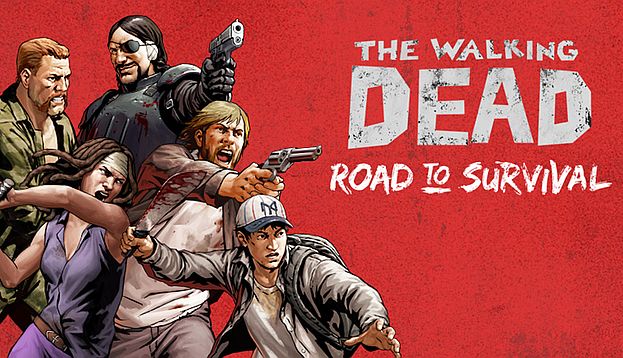It takes a lot these days to burst into the top ranks of mobile games, and even more to stay there. You need a great game, of course, but great marketing is virtually a necessity to get a mobile game into the top ranks swiftly. The latest example is Scopely’s The Walking Dead: Road to Survival, which has seen over four million installs in its first week, and been at or near the top of the charts in both the iOS App Store and the Google Play Store. The game’s success has been propelled not only by the quality of the game and the tens of millions of fans of The Walking Dead, but by Scopely’s extensive marketing campaign.
Scopely designed a custom, multi-pronged marketing approach to mobilize The Walking Dead core fan base and elevate the brand to new audiences. The campaign kicked off with a two week pre-launch viral push designed to engage the core fans and turn them into brand advocates and early adopters, and amplified at launch with national broadcast advertising and partnerships with social media influencers such as YouTube sensation PewDiePie.
The Walking Dead: Road to Survival campaign highlights include:
- 160 million impressions from national TV campaign for 30-second cinematic, full CGI TV spot targeting Men 18-49 on major networks, ESPN, ESPN2, Comedy Central, Adult Swim, FX, NFL Network, MTV, TBS and TNT
- 56 million impressions across social platforms, Twitter, Instagram and Facebook
- Four million views from promo videos on YouTube and Facebook with PewDiePie and other social influencers transformed into Walkers by The Walking Dead makeup artists
- 20 million impressions from pre-launch viral campaign on Twitter, Instagram and web:
- 6.2 million impressions from viral mailer leading to Choose Your Own Adventure-style clue hunt on Instagram
- 56,400 calls made to a secret phone number, prompting returned, interactive calls from Walking Dead character Lori Grimes
- Early adopter “Patient Zero” CRM campaign to drive Facebook connect adoption, and integrated in app, push and email CRM programming targeted by user
- 10 language worldwide ad creative
Jamie Berger, head of product marketing for Scopely, spoke with [a]listdaily about the marketing campaign and what we can expect from the future of mobile game marketing.
 Jamie Berger
Jamie Berger
How did you devise this marketing campaign, and what was the thinking that lead to this campaign?
The foundational part of the marketing campaign really goes back to the insights into the consumer. That informed the product as well as the marketing. I would argue one of the reasons we’ve been successful is that everything we have done is built on the understanding of both fans of The Walking Dead and fans of roleplaying games — and what it meant to make a Walking Dead roleplaying game on mobile that would excite and engage the fans. What were those components that were critical to the game experience but would also speak to the consumers from a marketing point of view It’s not all about the tactics — the tactics are interesting, but it has to start with a foundational understanding the consumers, the players, what their desires are, and making the game that’s going to engage and delight them. The marketing comes quite easily after that, because we have an amazing property, a terrific game that the players love, and combining those things creates a really powerful message.
What metrics have you achieved so far for the game?
It’s exciting to see the immediate response to the game. We anticipated that — we clearly understood the really powerful passion around The Walking Dead. We were #1 All Apps for four days in the App Store, we’re still the #2 game and #13 in All Apps, and that’s a a week later. On Google Play we’ve been rising up the charts, we’re now the #4 app of all free apps, and the #1 game in the Google Play store. That’s a testament to how strongly people are responding to this game. The marketing is really just there to activate that audience. It’s breaking through a very crowded market for entertainment as well as mobile apps. Once they heard about the game and they heard the word of mouth from their friends, that’s what really drive the virality and the instant growth.

Your marketing campaign covered many elements — TV ads, influencers, social media — which is not the norm for many games. Why did you go so wide with your strategy?
There are two answers for that. First, we really believed in the product, it’s been in development for quite some time, and we saw how outstanding it was and tapped into a lot of unmet needs for the consumer market, for Walking Dead fans and RPG players. Some of the scope of this campaign is testament to our belief in this game being an outstanding game that people would want to play, so it informed our willingness to be aggressive.
Secondly, we know that this market for mobile games and entertainment is extremely competitive with numerous outstanding brands in the market at any given time, and thus numerous options for a consumer or a player at any given time. So we definitely believe that the best strategy in this case was to go both broad and deep at launch. When I say broad and deep, we did take two vectors in our strategy. Starting with the superfans, engaging the most core Walking Dead fans through a viral social campaign. Our focus was to activate that audience, get their attention, get them talking, knowing something was coming pre-launch.
When we had their attention and told them there was a new game based on The Walking Dead, they immediately took action. They downloaded the game and used their megaphone to tell millions of others that the game was now available. That was our first and primary platform, to use the virality and the depth of engagement of that audience to activate them. Then at launch is when you started seeing the breadth campaign. Television, of course, which we’re using in the US right now. Then numerous digital platforms — Facebook, Instagram, Twitter, YouTube, where we’re able to target and reach a global audience at mass scale. It’s mass in sheer volume of the people we were advertising to at any given time, but it was extremely targeted because we have multiple campaigns running right now digitally, individually targeted to a particular interest of a consumer.
How much is the marketing spend for this campaign compared to typical mobile game campaigns, when will you know if this level of spending is paying off?
We’re not disclosing dollars on the campaign itself, but from the scale and cope it’s obviously an aggressive campaign. We’re putting a meaningful investment behind it, not just in the media but in the creative execution as well. Flying out makeup artists to make PewDiePie and other influencers into walkers from The Walking Dead. I wouldn’t even try to compare it to other campaigns out there — I just think it would be apples and oranges. What I would say is we’re extremely happy with how this early investment is paying off on multiple fronts — from brand awareness to brand recognition, to people are looking for us by name and talking about us through word of mouth, driving aided and unaided brand awareness. Our direct awareness is bringing in consumers who are extremely engaged, playing the game multiple times a day, and they’re loving the game — we’re getting really high net promoter scores from our players. On all fronts, it’s really worked as we hoped and desired.
Do you feel this sort of effort raises the marketing stakes for other mobile game companies?
The market is already requiring it as far as we’re concerned. The mobile game market is undergoing a rapid evolution. The level of sophistication on all fronts — the quality of the games, the consumer sophistication, the platform, the business, the technology, the marketing, all the table stakes are rising. I would argue we saw that coming and we believed it was important for us to lean in and execute at optimal capabilities and fire on all cylinders. It’s not about us trying to change the dynamics of the market globally, it’s just we see where the market is going and trying to break through in an increasingly competitive market with consumers who have effectively unlimited choices available to them at any given moment. Maybe it’s a harbinger of the future, but I wouldn’t claim we’re trying to raise the stakes ourselves.

